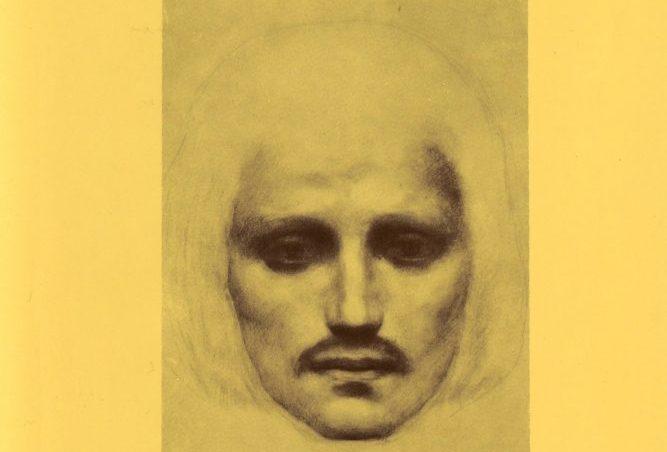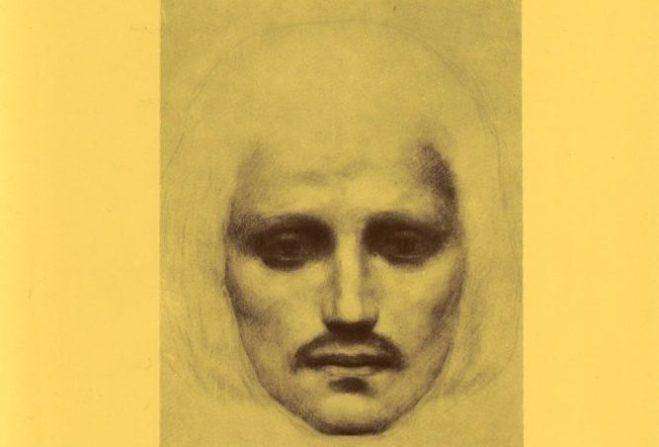
Before we get to it, I should warn you: This post is a bit more spiritual than practical.
Is it because I’m getting old and wise? Or maybe just lazy?
… Yeah, probably just lazy…
Either way, we’re diving into the first chapter of a truly special book: The Prophet by Kahlil Gibran. It combines poetry and prose to explore concepts like work, freedom, and love in ways that often hold relevance to digital nomad life.
Listen to the full pod here:
The premise is that of a prophet – Almustafa – sharing his deep stores of wisdom before returning to his homeland. Here’s the first passage that sets this scene:
Almustafa, the chosen and the beloved, who was a dawn onto his own day, had waited twelve years in the city of Orphalese for his ship that was to return and bear him back to the isle of his birth.
And in the twelfth year, on the seventh day of Ielool, the month of reaping, he climbed the hill without the city walls and looked seaward; and he beheld the ship coming with the mist.
Lots to unpack here. First off, despite years and years of waiting, the prophet is still “a dawn onto his own day,” suggesting that it’s never too late for a new beginning. He knows he’s not in the right place, but instead of ignoring this truth, he’s proactive about his dream by taking risks (i.e. going outside the city walls) and being diligent (i.e. climbing the hill daily).
Also significant: the “month of reaping,” harkening to the idea that “you reap before you sow.” With each climb up the hill, he is reaping and preparing; he’s not counting on instant gratification.
Rather, dreams require waits and sacrifices. And when achieved, having skin in the game is what makes those dreams so sweet and sustainable.
He climbed the hill… and looked seaward; and he beheld the ship coming with the mist.
Then the gates of his heart were flung open, and his joy flew far over the sea.
How do we know if our dreams are real? There’s no way of knowing without this deep, pure joy; it’s the signal we need to confirm our efforts.
If this joy doesn’t come, we’ve likely lied to ourselves about a dream that sounds good but simply isn’t ours.
…But he descended the hill, a sadness came upon him, and he thought in his heart:
How shall I go in peace and without sorrow? Nay, not without a wound in the spirit shall I leave this city… Who can depart from his pain and his aloneness without regret?
Too many fragments of the spirit have I scattered in these streets… It is not a garment I cast off this day, but a skin that I tear with my own hands. Nor is it a thought I leave behind me, but a heart made sweet with hunger and with thirst.
Let’s start with “he thought in his heart.” The ability to analyze one’s feelings along a journey of conceptual change is a very powerful skill. And here, it leads the prophet to sorrow.
This is a natural part of the process; each dream we achieve bears a price to pay. For Almustafa, it’s the pain of leaving behind a city he cares about. There’s an important lesson here of valuing the different chapters of our lives – no matter how stuck or ashamed they make us feel. Each one is crucial to creating who we are.
And that brings up a second painful separation: From oneself. “It is not a garment… but a skin” suggests that the prophet must also leave behind a version of himself. Within each rebirth, there is death, even in our own journeys.
Finally, we must also shift our mindsets by separating from our longings. The thirst for our dreams can be addicting, but once the dreams arrive, we have to let go of those yearnings and face the challenges of reality. All of the stories we created for ourselves about why we’re on this journey become tested… And some are proven false.
Yet I cannot tarry longer.
The sea that calls all things unto her calls me, and I must embark.
For to stay, though the hours burn in the night, is to freeze and crystallize and be bound in a mould.
Even with all the risks we just discussed, the greatest risk is taking no risk at all.
In fact, the price to pay for not pursuing our dreams is unthinkable; it’s “to freeze and crystallize and be bound.”
Fain would I take with me all that is here. But how shall I?
A voice cannot carry the tongue and the lips that give it wings. Alone must it seek the ether.And alone and without his nest shall the eagle fly across the sun.
Again, he reiterates the notion that we must leave things behind when a new start comes along.
These things may be close to our hearts – and they may have been instrumental to our growth – but we must separate to be truly free. And to find what we are capable of.
And you, vast sea… shall I come to you, a boundless drop to a boundless ocean.
When we imagine our dreams, we picture paradise, right? Full of joy, well-defined, no surprises. But that’s hardly ever the case.
Rather, our futures are undefined and boundless. Even after we take the plunge, our dreams often change shapes and move between quiet and storm. Yet, despite this lack of clarity, there is always space for us to somehow fit into our dreams, much like a drop in an ocean.
And the elders of the city stood forth and said: Go not yet away from us.
And he said to himself: Shall the day of parting be the day of gathering? And shall it be said that my eve was in truth my dawn? … And ever has it been that love knows not its own depth until the hour of separation.
Coming back to the idea of separation, the prophet finds that the full power of his attachments can only be realized when he has to leave them behind.
He’s struggling with a relatable reality: some people who love us will obstruct our dreams. Some will even ask us to stay.
He also finds himself juggling the inner doubts of his pursuit. That line questioning whether his “eve was in truth [his] dawn” aptly reflects the uncertainty of our journeys. Is he transitioning to a brighter future? Or unknowingly leaving it behind? Even prophets cannot say for certain.
And there came out of the sanctuary a woman whose name was Almitra. And she was a seeress…
It was she who had first sought and believed in him when he had been but a day in their city.
And she hailed him, saying:
Prophet of God, in quest for the uttermost, long have you searched the distances for your ship.
And now your ship has come, and you must needs go.
Deep is your longing for the land of your memories and the dwelling place of your greater desires; and our love would not bind you nor our needs hold you.
The idea here is that if we’re lucky, the people who love us most will set us free. As painful as it may be, they’ll understand our need to be elsewhere and they’ll allow us to pursue our dreams.
In our lives, Almitra can appear in many different shapes – often ones we least expect. Consider even a boss firing you or a significant other leaving you. Both are undoubtedly painful… But both can also be potentially liberating.
Whoever it is, it’s worth identifying our Almitras and being grateful to them for pushing us towards the sea.
That’s it for this little dive into poetry! If you find it interesting and want to read more of the prophet’s musings, here’s a free PDF link.
In general, I think Gibran is worth checking out further. He was an early 20th-century Lebanese writer, philosopher, and artist who had quite a tough life – poverty, immigration, and premature family deaths. That said, it did give him this uncanny ability to decipher reality in creative ways.
For that very reason, he and British philosopher Alan Watts are two of my most admired thinkers. I’ll cap this off by pointing out that both Gibran and Watts also suffered from alcoholism… It seems even the most intelligent giants among us have their falls.



0 Comments